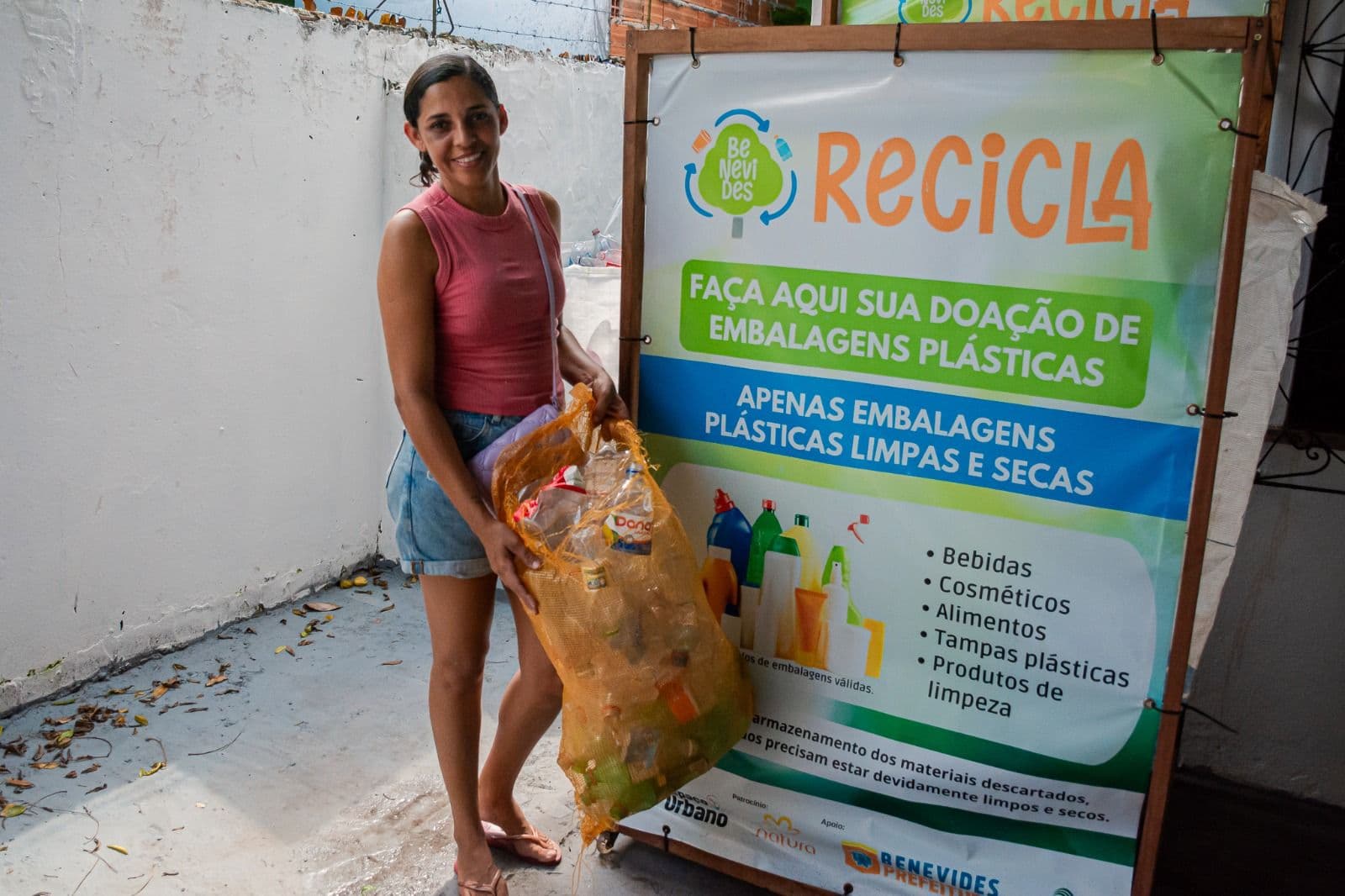
15/10/2025
Waste as the future: circularity and collaboration in the heart of the Amazon Forest
By Arlene Carvalho, from the Circular Movement
When we talk about the Circular Economy, it is impossible to ignore the importance of collaboration. In the 21st century, every initiative needs to balance sustainability, social impact, and economic feasibility, while addressing the urgency of the climate emergency, the central challenge of COP30, which will take place in November in Pará.
According to Professor Dr. Edson Grandisoli, ambassador of the Circular Movement, initiatives that encourage people to dispose of their waste correctly, combined with recycling and reuse structures, are fundamental steps to address the climate emergency, since waste globally emits between 5% and 10% of greenhouse gases. However, it is important to emphasize that cultural changes are also essential, related to reducing consumption and promoting more conscious consumption habits.
“It is necessary to combine changes in habits with infrastructure to properly manage our waste. Over time, people are likely to start rethinking the consumption of certain products or materials. These are stages of an urgent cultural shift that addresses environmental pollution and the climate emergency.”
Among the many critical points of the climate emergency, improper waste disposal stands out: according to the United Nations, more than 11 million tons of this waste reach the oceans every year, contributing to the degradation of oceans and associated marine ecosystems, while negatively affecting the lives of thousands of coastal communities. Therefore, this is not only an environmental issue but a socio-environmental one, requiring collective action, innovation, and effective public policies.
In this scenario, initiatives aimed at combating plastic pollution become even more relevant, such as the program developed in Benevides, Pará, since 2024, which serves as a reference in mobilization and sustainability. The Benevides Recicla Program is a collaboration between the Benevides City Hall, with support, guidance, and integration from the NGO Espaço Urbano, the ReciclaBen Cooperative, Natura, and Tetra Pak. More than an environmental program, the initiative seeks to promote a true cultural transformation regarding waste disposal through social mobilization, gamification strategies, and globally-reaching actions.
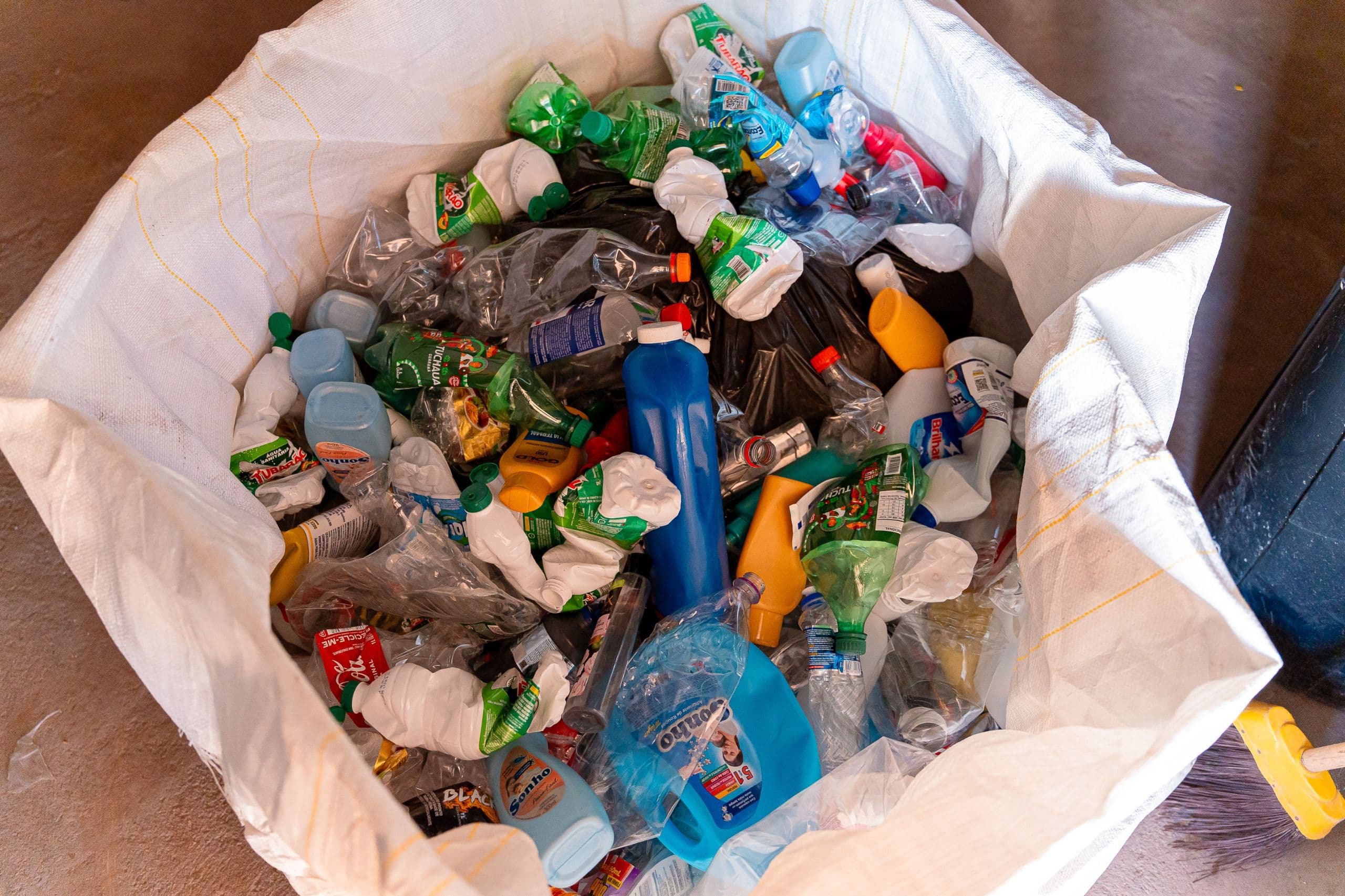
According to the mayor of Benevides, Luziane Solon, this is a project that, in just over a year, has already provided proper disposal for more than 160 tons of waste and currently has over 60 active collection points.
“Our vision is to turn environmental challenges into opportunities for growth and inclusion for the population. We are showing Brazil that it is possible to build a greener and more prosperous future, starting with the proper collection of our waste.”
How does Benevides Recicla work in practice?
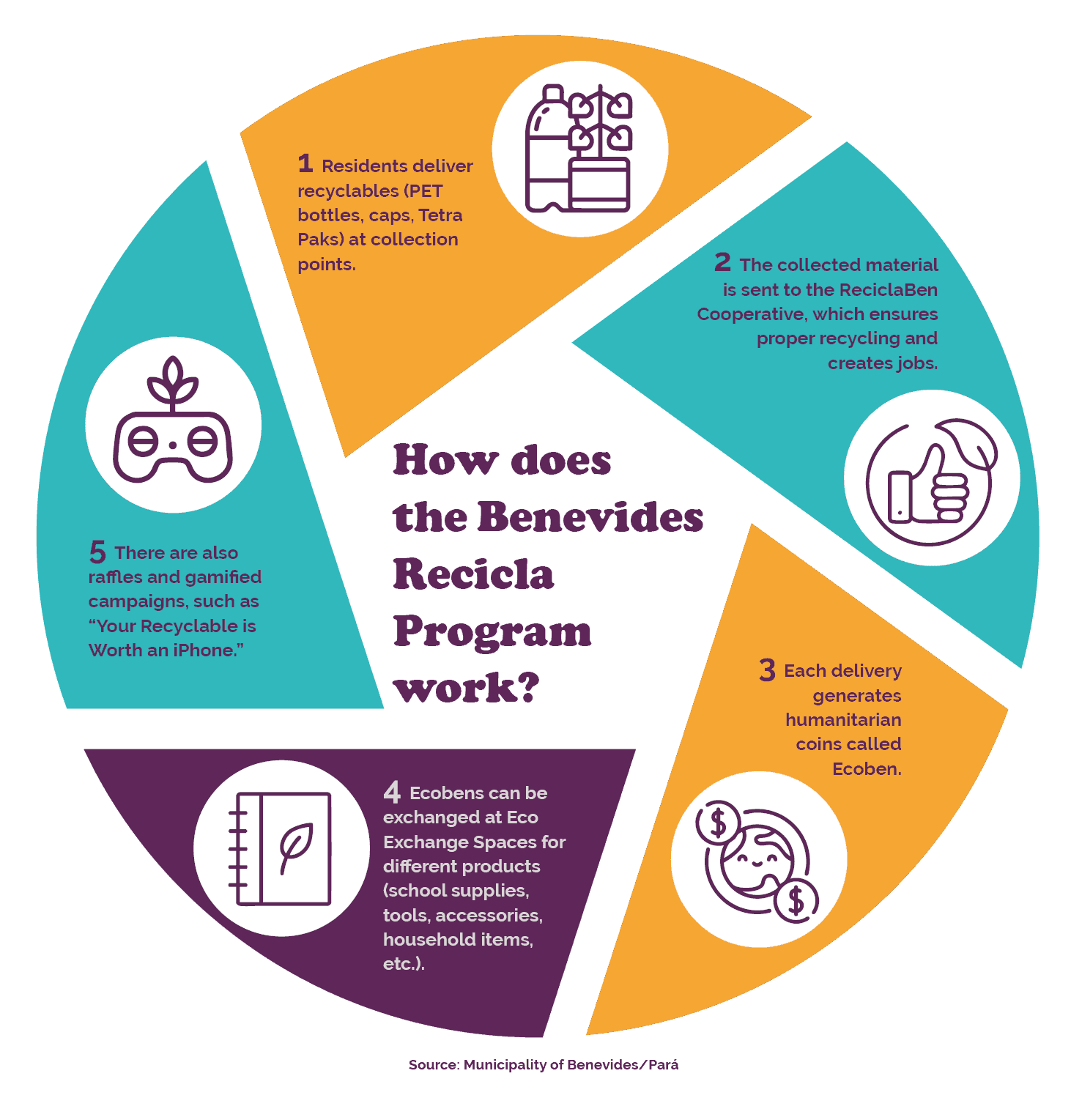
The city’s engagement is so strong that even church services have become part of the program’s dynamics. With the support of the local parish, Green Masses were created, where recyclable materials are exchanged for food, clothing, and household items at the so-called Market of Good. This is another example of how the program fosters the creation of new exchange and donation ecosystems, always driven by community involvement.
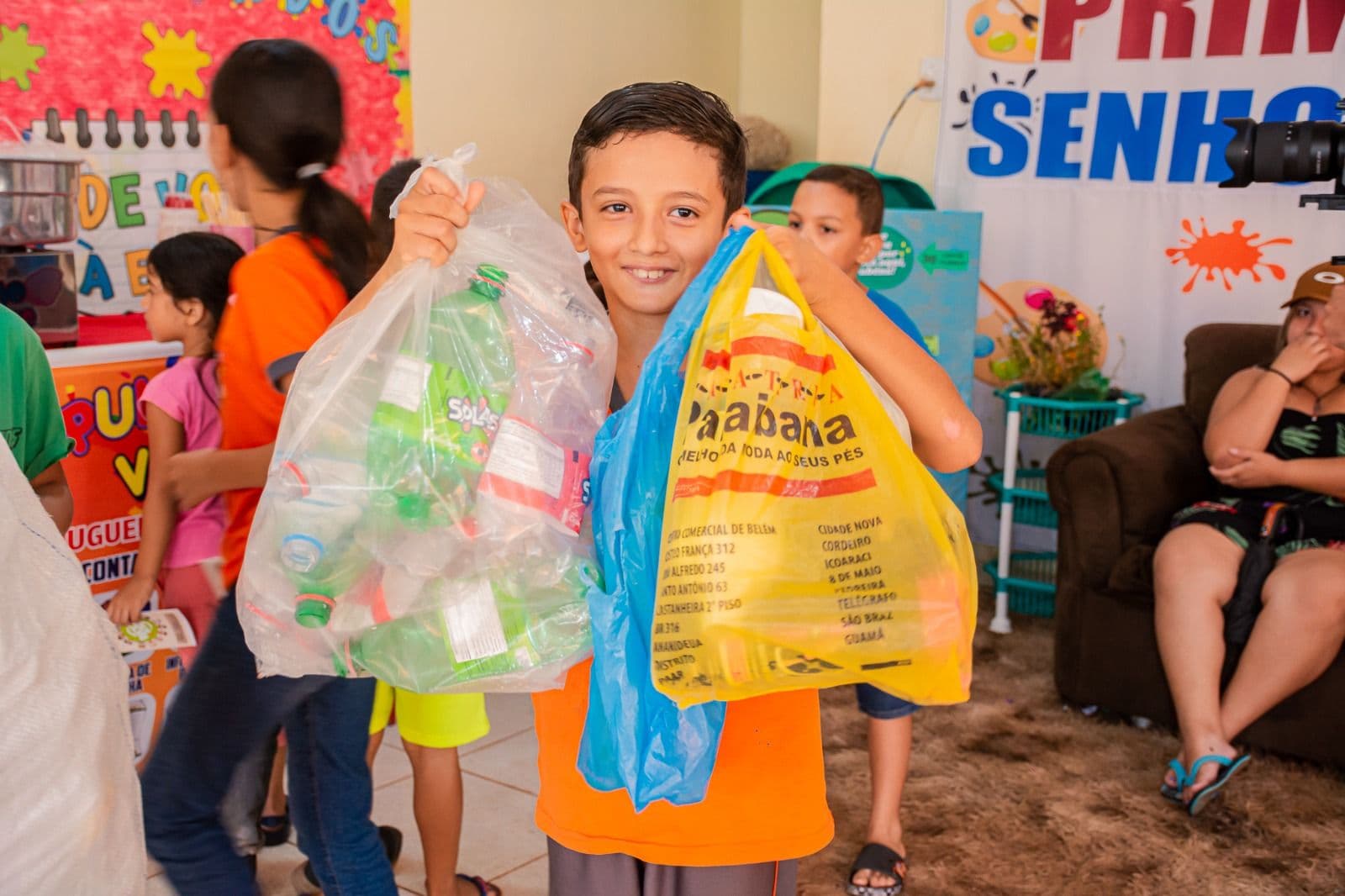
According to the city government, the program aligns directly with the goals of COP30 by promoting circular economy and socio-environmental justice.
“The program is a municipal public policy and creates a management model that can be replicated in other cities, reinforcing Benevides’ role as an example in the implementation of projects aimed at environmental preservation,” explains Solon.
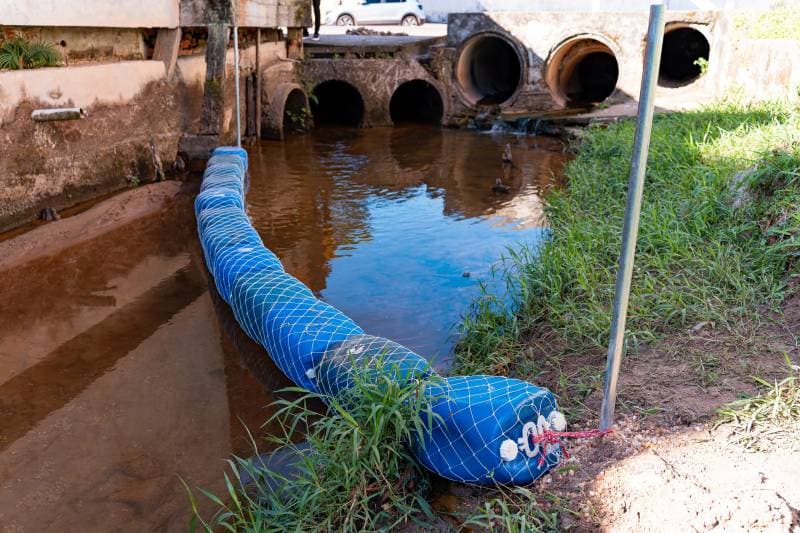
Strengthening the Initiative
This year, Benevides took another step in its circularity agenda by installing the first Eco-barrier in Pará, on the Benfica River. The structure, made with recyclable containers, nets, and ropes, prevents household waste and debris from reaching streams and other rivers in the municipality. By stopping waste from reaching rivers and the ocean, the eco-barrier helps protect ecosystems. This installation is the result of a partnership between the City Hall, Natura, and environmental activist Diego Saldanha, the creator of eco-barriers in Brazil.
“The ‘Benevides Recicla’ Program and the installation of the Eco-barrier in our municipality prove that sustainability, when combined with the active participation of the entire city, can generate extraordinary results,” emphasizes Mayor Luziane Solon.
Simple, low-cost, and adaptable to water levels, the barrier directs waste to the riverbank, facilitating collection three times a week and sending it to cooperatives linked to Benevides Recicla. The eco-barriers were created by activist Diego Saldanha in the city of Colombo, Paraná, in 2016. According to him, the solution arose from the need to improve the life of the Atuba River, a part of his childhood.
“I want my children to grow up with environmental awareness. The challenges were great because innovation means doing what everyone knows is necessary, but no one does. I started with a simple barrier and evolved according to my possibilities,” explains the activist.
He reports that in Paraná alone, since 2016, more than 30 tons of waste have been removed from the waters. As in Benevides, this waste is donated to a recycling cooperative, which converts the material that was polluting the river into income.
The activist dreams of bringing eco-barriers to other cities but often faces bureaucracy and a lack of funds. Partner support has been crucial for advancing the initiative. With funding from Natura through the Elos – Rios Vivos program, the project received an initial boost to expand nationwide and inspire other companies to follow the example.
“With Natura’s funding, we installed two eco-barriers in Pará. I believe this is just a first step toward bringing eco-barriers across the country and inspiring other companies to follow suit,” Saldanha emphasizes.
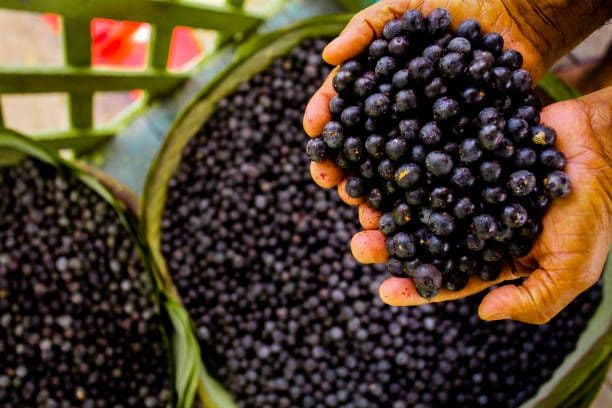
Circularity in Everyday Life
The project in Benevides reinforces how the circular economy can move from discourse to tangible action. At Natura, this approach is integrated into the company’s daily operations.
Sergio Talocchi, Senior Manager of Sustainable Supply Chains at Natura, is responsible for structuring supply chains for recycled materials, such as plastic, glass, and paper, used in cosmetic packaging and supporting materials. The Elos program, launched in 2017 in São Paulo, works with over 50 cooperatives throughout Brazil and focuses on managing socio-environmental risks along the recycling chain.
Within Elos, the Rios Vivos Program, launched in 2019 in the Amazon, focuses on waste management in riverside rural communities and small urban centers in the Amazon. The initiative addresses the problem of improper waste disposal and the presence of microplastics in rivers, an urgent challenge considering that, according to the SOS Mata Atlântica, only 7% of Brazilian rivers have good water quality.
Talocchi highlights that the company always acts as a bridge between the chain’s links, leveraging existing opportunities for stakeholders and investing in their real needs.
“Natura does not directly purchase the collected materials; we act to connect the chain’s links and ensure an ethical and inclusive process. We also work to promote and invest in the development of cooperatives, complementing the partnerships they already have with municipalities, NGOs, and other companies.”
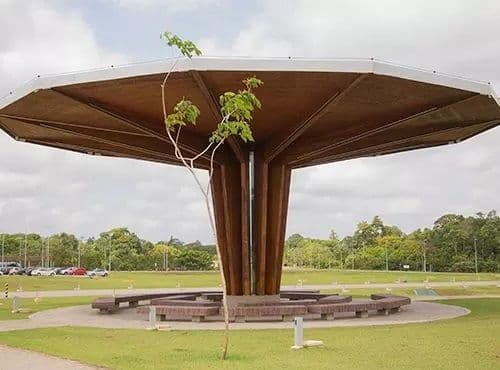
Benevides was chosen for the investment due to the proximity of Natura’s factory in the Ecopark, a sustainable industrial complex that produces over one million soaps per day and seeks to attract other companies to strengthen industrialization and the Amazon’s wealth.
In the first year, more than 30% of the population was involved, with a target of reaching 50%, participating in the collection of clean plastics that facilitate sorting, raise environmental awareness, encourage waste separation habits, and generate local economies. The materials collected by cooperatives are baled and integrated into Natura’s recycled resin chain, contributing to the production of new packaging.
The manager also emphasizes that, complementing land-based actions, the eco-barriers collect plastics directly from rivers, preventing them from reaching the sea or causing floods, with a significant visual impact, although the total amount collected is still being evaluated.
“These local actions reinforce Natura’s commitment to the circular economy and environmental protection, demonstrating that collaboration between companies, cooperatives, and communities can generate significant positive impacts.”
The Benevides Recicla Program shows that collaboration between government, communities, cooperatives, and companies is essential to addressing socio-environmental challenges. The partnership with Natura and the implementation of eco-barriers exemplify how joint efforts can transform waste into opportunities, protect rivers, and create positive social impact. Benevides thus becomes an example of how collective engagement and strategic cooperation are pillars of the circular economy and building a more resilient future.
However, while programs like Benevides Recicla yield tangible results and mobilize communities, experts remind that full circularity also involves reducing waste generation at its source. Finally, Professor Dr. Edson Grandisoli, ambassador of the Circular Movement, emphasizes that remediation alone is not enough.
“Selective collection and recycling initiatives are essential and generate important social and environmental results. However, these practices must also encourage better choices when consuming, leading to reduced consumption of certain products and materials that quickly become waste. This is one of the horizons toward which COP30 and local initiatives can point,” concludes the ambassador.
*This text was automatically translated with the help of artificial intelligence and reviewed. Still, there may be slight differences compared to the original version in Portuguese.

